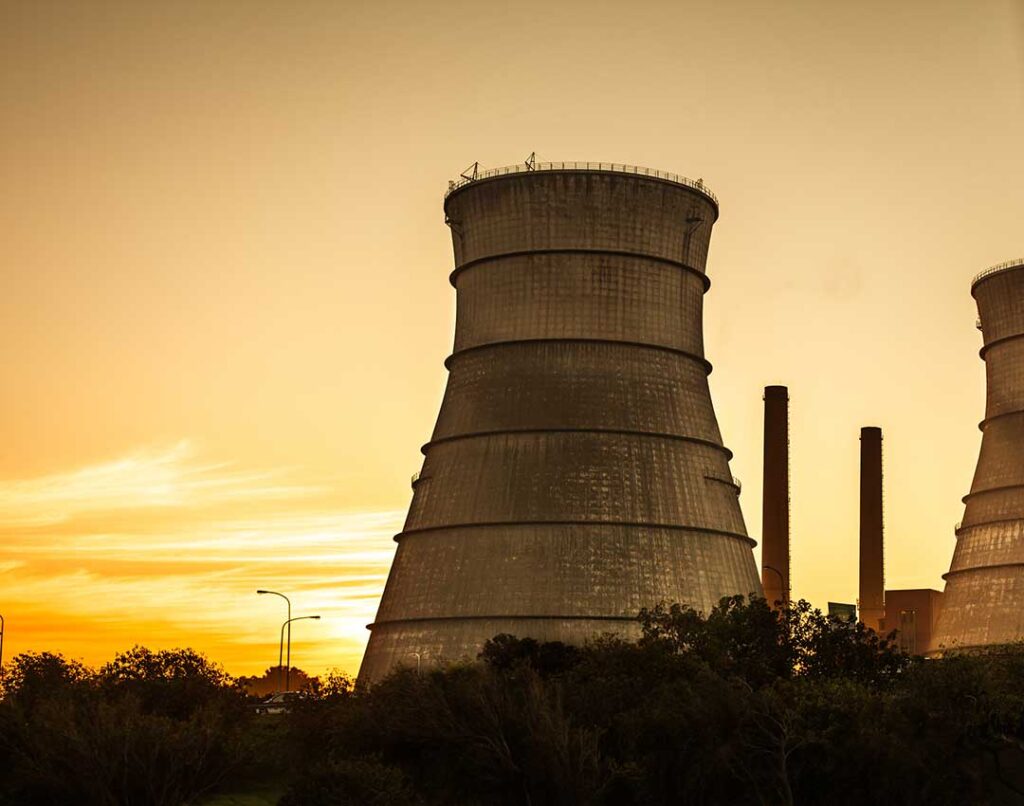ADF STAFF
With growing demand for electricity, African nations are exploring the potential for nuclear power — a prospect that has prompted calls for better training aimed at safeguarding nuclear materials against potential terrorist threats.
South Africa is the lone country on the continent with a functional nuclear power station, which it plans to expand in 2024. Algeria, Ghana, and Morocco operate research reactors capable of generating small amounts of radioactive material. Egypt, Morocco and Uganda are actively working on agreements to develop their own nuclear power programs and could have functioning reactors within less than a decade, according to the advocacy group Energy for Growth.
“African states are in different stages when it comes to the peaceful uses of nuclear energy, and many need to build capacity to maintain state systems of accounting for and control of nuclear materials and to effectively implement IAEA [International Atomic Energy Agency] safeguards,” Enobot Agboraw, executive secretary of the African Commission on Nuclear Energy (AFCONE), said in a statement released by STUK, the Finnish Radiation and Nuclear Safety Authority.
STUK is working with AFCONE to launch a five-year project to strengthen African nations’ capacity for protecting nuclear material. The Kenya Nuclear Regulatory Authority (KNRA) recently hosted a 29-member conference similarly designed to help countries build robust nuclear security programs. A previous conference in July 2023 drew participants from 22 African countries.
African nations are moving ahead with nuclear security at a time when the worldwide trend is going in the opposite direction, according to a report by the Nuclear Threat Initiative (NTI).
“Too many of these countries and areas have neglected their obligation to improve the security of some of the world’s most sensitive materials and facilities at a time when risk environments are growing ever more dangerous and unpredictable,” NTI analysts wrote in their report, which looked at nations’ dedication to protecting nuclear materials and facilities from theft and sabotage.
South Africa ranked 16th among 22 nations evaluated for its ability to secure weapons-grade nuclear material. The country has improved in the rankings since 2012, according to NTI.
Political and economic instability, terrorism and cyberattacks make it vital for countries that possess nuclear capabilities and nuclear materials to put greater effort into protecting them, NTI analysts wrote.
That is especially important since the amount of plutonium is increasing as a result of countries reprocessing spent nuclear fuel. A plutonium pellet the size of a soda can is enough to build a highly destructive nuclear weapon, according to NTI.
“Terrorist groups have shown clear interest in acquiring nuclear materials and sabotaging nuclear facilities, and disruptive technologies like unmanned aerial vehicles and hybrid threat capabilities pose new challenges,” the analysts wrote.
The report found some encouraging signs: The amount of highly enriched uranium around the world had dropped in recent years, meaning there’s less available for potentially harmful uses. Also, the number of countries protecting their nuclear materials in line with international protocols has doubled to 73, leaving 58 countries out of compliance.
That still leaves too much nuclear material unprotected, experts say.
“The bottom line is that the countries and areas with the greatest responsibility for protecting the world from a catastrophic act of nuclear terrorism are derelict in their duty,” the analysts wrote.

